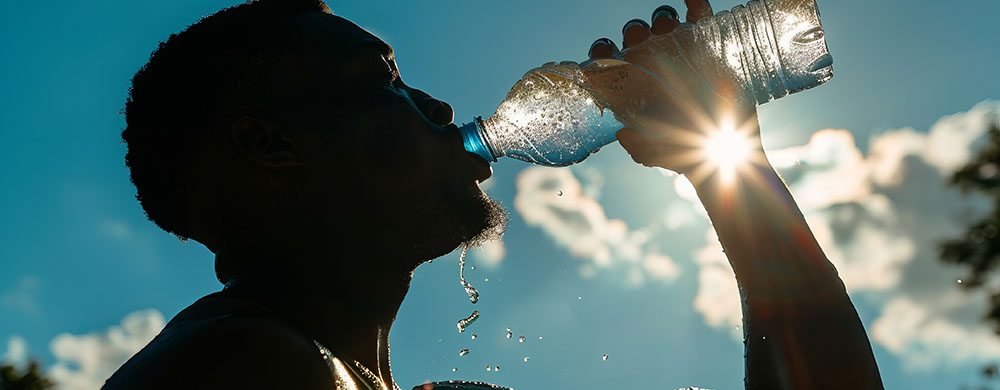As the summer sun intensifies, so does the risk of heat waves. These prolonged periods of extreme heat can pose significant health and safety hazards, making it crucial for individuals and communities to take proactive measures for heatwave protection. Heat waves can be dangerous, but with heat protection measures, you can minimize the risks and stay safe.
Below are several essential tips on how to stay safe and cool during scorching heat waves:
- Stay Hydrated: Adequate hydration is paramount during a heatwave. Drink plenty of water throughout the day, even if you don’t feel thirsty. Avoid excessive caffeine or alcohol intake, as they can contribute to dehydration. Encourage others, especially vulnerable populations such as the elderly and young children, to stay hydrated.
- Seek Cool Environments: Stay indoors in air-conditioned spaces as much as possible. Create a designated cool area at home by using fans, opening windows during cooler hours, and closing curtains or blinds to block out direct sunlight. If you don’t have air conditioning at home, consider visiting public buildings with cool environments, such as libraries, shopping malls, or community centers.
- Dress Appropriately: Choose lightweight, loose-fitting, and light-colored clothing to facilitate better airflow and reflect sunlight. Wear breathable fabrics like cotton or linen, which allow sweat to evaporate more quickly. Wearing a wide-brimmed hat and sunglasses can provide additional protection from the sun.
- Time Outdoor Activities Wisely: Plan outdoor activities during cooler parts of the day, such as early mornings or evenings, when the sun’s intensity isn’t as strong. Limit strenuous physical activities and take frequent breaks in shaded or cool areas. If you must be outdoors, use sunscreen with a high SPF and reapply it regularly.
- Check on Vulnerable Individuals: Keep a close eye on vulnerable individuals, including the elderly, children, and those with chronic illnesses. Ensure they can access cool environments, monitor their well-being, and encourage them to follow heatwave protection guidelines. Offer assistance to those who may need support during extreme heat.
- Know the Signs of Heat-related Illnesses: Educate yourself about the signs and symptoms of heat exhaustion and heatstroke. These include heavy sweating, dizziness, nausea, headaches, rapid heartbeat, confusion, and even loss of consciousness. If you or someone around you exhibits these symptoms, seek immediate medical attention and take steps to cool down, such as moving to a shaded area and applying cool, wet towels to the body.
- Stay Informed: Stay updated on weather forecasts and heatwave warnings issued by local authorities. Please pay attention to heat advisories and take them seriously. Follow recommendations and guidelines provided by emergency management agencies, health authorities, and local governments to ensure your safety.
By caring for yourself and looking out for others during extreme heat, we can navigate these challenging weather conditions and enjoy a safe and enjoyable summer season.



